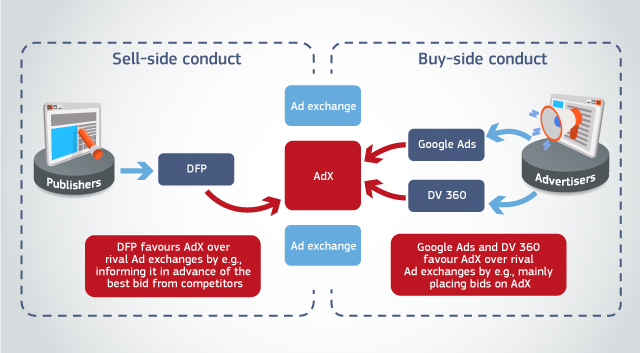The European Commission has release the opening of a file against Google, alleging that the Internet giant “may have used its position in the market to favor its own intermediation services”, making use of a vast ecosystem that includes not only the search engine, but also YouTube, Android and various home automation devices, all of them interconnected through various technologies that ultimately generate information that Google can use through its advertising platform.
According to the European Commission’s announcement, Google has a dominant position as an ad serving company and also as a provider of programmatic advertising buying tools. So far, no problem. The Commission tolerates monopolies as long as they follow the rules, but from the competition department it is preliminarily considered that, at least from 2014, Google has prioritized its own services through the domain of the entire chain. As a result, its potential rivals in this space are sidelined, and some may have had to go out of business.

Infographic explaining the mechanism of Google abuse according to the European Commission.
The conclusion reached by the European Commission is drastic and somewhat replicates that of the United States: the risk of Google continuing these abusive practices is inherent, as are conflicts of interest, so at least in principle , the authorities believe that the only way to resolve this conflict is by forcing the separation of Google’s advertising business from the rest of the company, dividing both companies in two.
Separating Google’s advertising business from the rest of its subsidiaries would solve the abuse of dominance problems, but it would also seriously jeopardize the survival of many Google services. It would certainly not be a decision to be taken lightly. Nor is it a sanction that Google is going to admit without further ado, since advertising represents 80% of the company’s gross income. Something similar happens with possible economic sanctions. If found guilty, Google faces a fine equal to 10% of its annual worldwide revenue.











